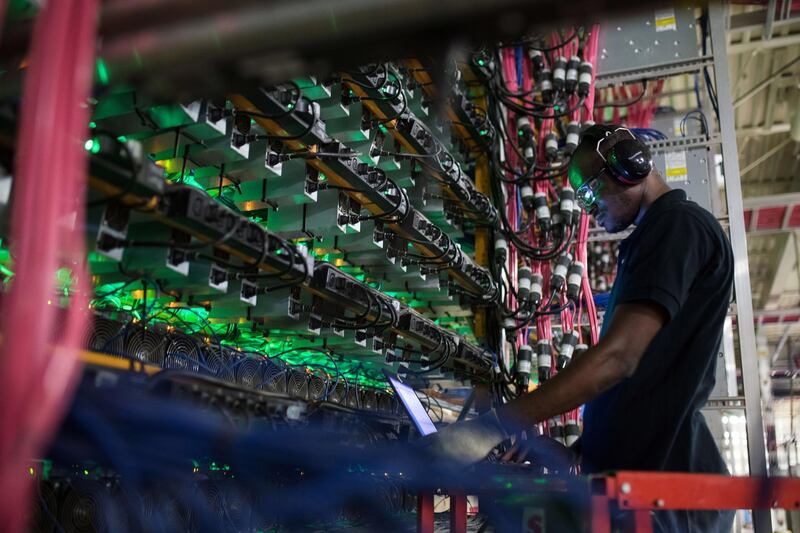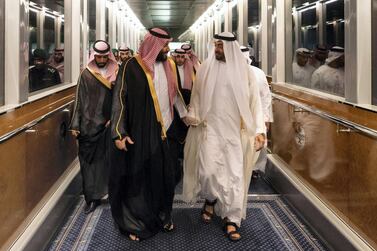A proposed UAE-Saudi digital currency will be restricted to a few banks in each country for executing financial settlements between the two, the Central Bank of the UAE said on Tuesday.
The currency project, called Aber, is part of a seven-point co-operation plan agreed upon during the meeting of the Executive Committee of the Saudi-Emirati Co-ordination Council earlier this month.
"The use of the currency will be restricted to a limited number of banks in each state," the central bank said. "In case that no technical obstacles are encountered, economic and legal requirements for future uses will be considered."
The bank did not say when the project, to be based on Blockchain technology, will be launched.
The UAE and Saudi Arabia are forging closer economic ties amid plans to fast-track customs for key companies, allowing small and medium-sized enterprises in both countries to bid for contracts, and setting up a common market for civil aviation.
The Abu Dhabi Global Market, the emirate's financial free zone, said the proposed currency will benefit the Arabian Gulf's financial industry as a whole.
"A central bank-backed digital currency has the potential to transform financial services in the GCC in a way that promotes financial inclusion, engenders trust in a cashless economy, and makes cross-border financial transactions safer, faster and more cost-efficient," said Richard Teng, CEO, Financial Services Regulatory Authority of ADGM. "We look forward to working closely with fellow regulators to advance digital transformation.”
Banks, governments, exchange houses and financial services companies are increasingly looking to adopt emerging technologies such as Blockchain to cut the costs of doing business. Spending on Blockchain technology in the Middle East and Africa was projected to double in 2018 to $80.8 million (Dh296.3m) from the $38.9m spent in 2017, according to an IDC report issued last February.
The Dubai International Financial Centre, the emirate's financial freezone, said the pilot project is in sync with both countries' economic roadmaps.
“The new Aber digital currency pilot project is closely aligned with the UAE National Agenda and Saudi Arabia’s Vision 2030, both of which will foster innovation in the respective countries and across the region," said Essa Kazim, governor of DIFC. "Blockchain and digital currency are areas that the DIFC is evaluating with great interest and will certainly create new opportunities within the financial services sector.”
The pilot project will study "the dimensions of modern technologies and their feasibility through practical application and the determination of their impact on the improvement and the reduction of remittances costs and the assessment of technical risks and how to deal with them", the central bank said.
For the GCC region – which accounts for a sizeable proportion of total global remittances each year, according to the World Bank – a Blockchain-based system could revolutionise banks’ cross-border payments mechanisms, according to experts.
The Saudi Arabian Monetary Authority, the country's central bank, and the Central Bank of the UAE share the same desire to launch pilot projects in the use of technologies applied in circulation of digital currencies to learn how to benefit from them, the UAE central bank said.
The agreement to launch this project jointly rather than independently points "to the fact that the two countries have in place central systems for remittances and domestic transactions, which have evolved overtime and proved their feasibility", the central bank added.







